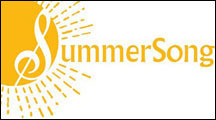
You’ve heard of football fantasy camp?
The University of Notre Dame Center for Liturgy’s annual three-day summer conference, held this year in mid-June, is a little like fantasy theology camp, says David Fagerberg, associate professor of theology and director of the center.
People miss those theology courses they took at Notre Dame as undergraduates, he notes.
“At Notre Dame, they had sustained theological thought,” Fagerberg says. “The conference topics are of interest to priests and deacons, but also for intelligent laypeople who want to think more deeply about their faith. It isn’t just ‘how-to’ hints for liturgy—it’s an opportunity for personal growth.”
The Center for Liturgy, which is one of four outreach programs under the umbrella of the Institute for Church Life (ICL), seeks to enrich and support the liturgical life of the Church through scholarly research and pastoral education.
Other ICL initiatives include the Satellite Theological Education Program (STEP), which offers online theology courses; the Center for Catechetical Initiatives, which helps prepare qualified people to serve as catechetical leaders; and ND Vision, a weeklong summer camp for high school students that focuses on faith formation.
The common goal of the ICL summer outreach programs is “to be a bridge between the life of the University and the life of the Church,” Fagerberg says.
SummerSong, a program of renewal for church musicians sponsored by the Center for Liturgy, the Department of Theology and the Office of Campus Ministry, this year brought 35 participants to campus for 12 very busy, 14-hour days of study, worship and music.
Being a church musician is “a burnout kind of job,” says SummerSong director and associate professor of theology Rev. Michael Driscoll. “They work week after week, year after year, often for low pay. They’re often asked to do things for which they haven’t been given adequate preparation—to do liturgical planning, or to choose music for rituals. We want to give them those kinds of skills.”
SummerSong participants—who traveled to Notre Dame from California, Long Island, and points in between—attended a four-credit, graduate-level course on the liturgical year or the theology of ministry in the morning, as well as music lessons and classes on topics such as vocal pedagogy and handbell technique, plenary sessions (“Multicultural Liturgy: Understanding the Hispanic Presence,” for example), and evening spiritual conferences led by Rev. Nicholas Ayo, C.S.C., considering topics such as the Trinity and the Lord’s Prayer. Participants also attended—and participated as worship leaders—in morning and evening prayer and Eucharist daily.
“I admire them so much,” Father Driscoll says. “Oftentimes participants are spending their vacation time at this conference, studying and practicing and trying to grow in their sense of ministry.”
Of the 35 participants this year, a dozen had attended before, Father Driscoll notes. Five participants will matriculate into the summer master’s program in liturgical studies.
“SummerSong instills in people the confidence that they can do this,” he says. “And they enter the (degree) program with four credits.”
Mark Purcell, director of music at Sts. Simon and Jude Catholic Church in Huntington Beach, Calif., is one of those who will be entering the master’s program. He brought six musicians from the parish to the conference, as well as specially labeled bottles of SummerSong wine, bottled by Windsor Vineyards.
This is his fourth SummerSong, Purcell notes.
“Third time’s the charm, the fourth is a gift from God,” he joked. “It’s gone from a ‘vacation’ to a ‘vocation.’”
Originally published by at newsinfo.nd.edu on August 19, 2008.